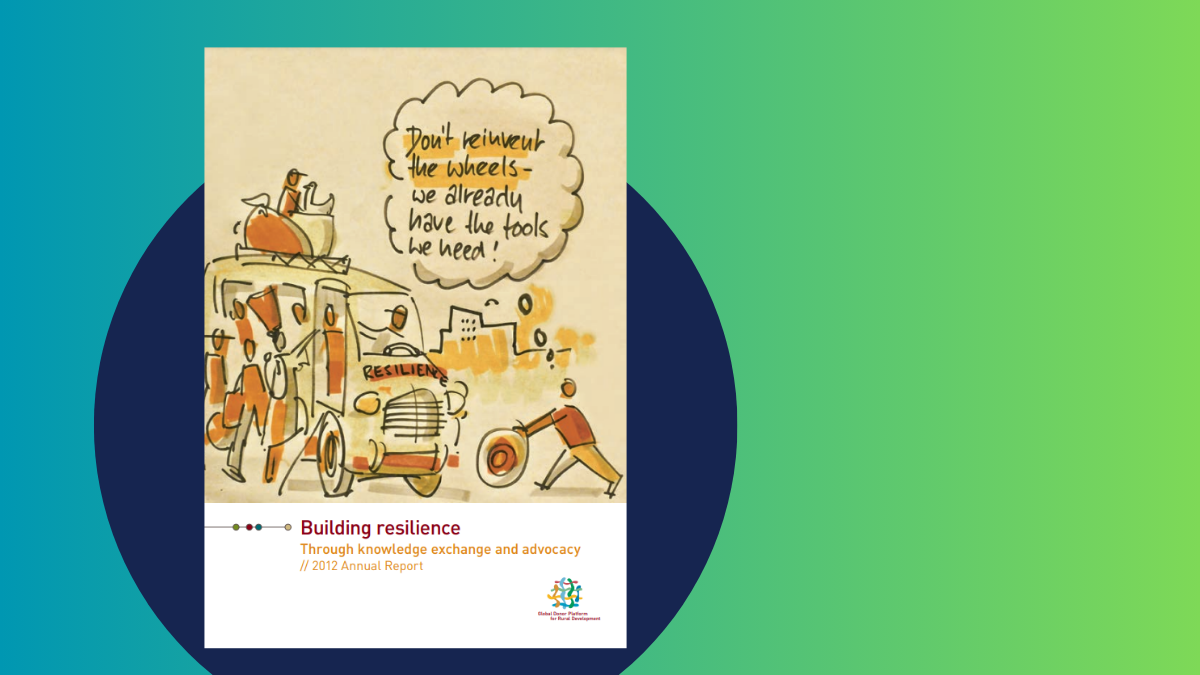Through knowledge exchange and advocacy
Several major trends and challenges have emerged to establish the context for the Platform’s work to tackle poverty and end hunger through sustainable agricultural development, food security and nutrition.
Download the 2012 Annual Report

As hunger and malnutrition continue to be major challenges, obesity rates have also doubled affecting children and adults in low- and middle-income countries. A rapidly growing population—from 7 billion to an estimated 9 billion people by 2050—is demanding increased food supplies. At the same time, climate change and demographic pressure on limited natural resources are affecting agricultural productivity and the sustainability of the global food system.
The Platform is where donors meet to improve aid effectiveness and coordinate efforts to reduce poverty and increase food and nutrition security through rural development. Its innovative knowledge exchange has developed its capacity for networking and outreach making the Platform an effective tool in the global struggle to reduce poverty, end hunger and achieve sustainable development.
This annual report also focuses on innovative fora and media used in 2012 to advance the Platform’s work in the nine priority streams: aid effectiveness, climate change, gender and youth, research, public sector engagement, nutrition, post-harvest losses, livestock/pastoralism, and knowledge exchange in general. The Platform participated in several major international events that created critical mass and fostered synergies among our various themes.
This past year, the Platform revised its Joint Donor Concept, principles that guide its work in agricultural and rural development. The paper is responsive to the interests of the members and reflects some of these new ideas in the changing agriculture and rural development landscape, including private sector engagement, nutrition, and resilience. A synthesis paper was published, “Donor Methods to Prioritise Investments in Agricultural Research and Development”, which presents a set of tools and methods used by donors to select research projects.
Publication date: May 2014
More Publications













































































































































































































